Wildlife credits
Wildlife credits
Donate now to support communities in their conservation efforts! Your donations will help protect Chimpanzees and pangolins in the Yangambi landscape and support the recovery of wildlife in the landscape
Why are chimpanzees and other vulnerable species at threat?
Emblematic species such as Chimpanzees and pangolins are at threat in the Yangambi landscape due to increased hunting pressure by local hunters. These hunters hunt as a source of food and income, due to the lack of other alternatives present in their communities. Despite the dependency of local communities on wildlife, withdrawing chimpanzees and pangolins from the menu would not put people’s food security at risk because these species are not among the most preferred, they only represent an insignificant portion of the catch and do not have a greater commercial or cultural value for their meat than other commonly found species. As such, So Wild has set up a fund to encourage hunters and the community to conserve the vulnerable species present in the Yangambi landscape and avoid hunting them. Some of these species are fully protected and therefore their conservation is normally required by law. However, given the absence of regulatory bodies, the law often remains ignored by landscape users. Given the very low abundance of these vulnerable species and the magnitude of hunting pressure, these funds represent the last option available to avoid the irreversible depletion of those species.
Why are monetary incentives necessary to reward conservation efforts for emblematic species?
Monetary incentives are necessary to ensure the conservation of emblematic species in the landscape because hunters and wildmeat traders are dependent on wildlife in a context of extreme poverty, poor food security, and the absence of alternative sources of income. The conservation of vulnerable species in the landscape generates a loss of earnings for hunters (species used as game) or a cost (species that destroy fields; species dangerous to humans, etc.). Therefore, the income generated by the fund must benefit those who live near wildlife and who bear the costs related to conservation.
How does the scheme function?
The fund generates payments for environmental services based on evidence of the presence of vulnerable species (according to the IUCN classification) within the landscape. This evidence consists of a photo taken by the camera traps on the camera stations established by the monitoring system directed by the community wildlife management committee. The picture must be clear enough to facilitate recognition of the species. The cameras are placed during the closed hunting season from 1st of August to 30th of November approximately according to provincial decrees. The amount of the yearly payment to the community depends on the number of pictures of vulnerable species captured during the monitoring period.
How are the funds used?
The funds are managed as an agreement between SOWILD and the local wildlife management Committees. The distribution of funds must be done in a transparent and equitable manner, also considering gender aspects. A fixed amount is invested in wildlife monitoring each year (human resources, field costs, and replacement of faulty cameras). The rest is invested based on choices made by each community and may include support to individual micro-projects or support to community projects (schools, health centers, zamba clubs, associations, etc.).
What is SOWILD doing in addition to these funds?
SOWILD is supporting local communities to preserve vulnerable species in the Yangambi landscape through a variety of actions which include supporting the community to run their wildlife management committee, training hunters to become wildlife researchers, developing productive alternatives to hunting, and fostering care for wildlife conservation. We also support demand reduction campaigns to ensure that wild meat hunted at the village level benefits local food security instead of filling the urban markets. Key to the success of our approach is the development of inclusive systems that empower local governance structures to make decisions and enforce local rules over wildlife, avoiding errors of top-down regulation. The process also fosters positive behavioural change, such as through the increased involvement of hunters in wildlife research, environmental education of youth, increased livelihood opportunities that do not affect wildlife, and a strategy to address human–wildlife conflict.
DONATE
